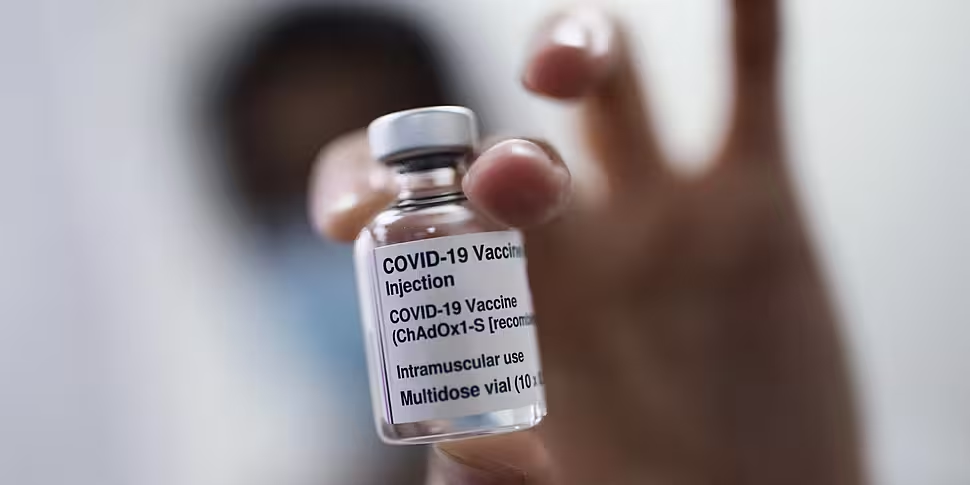The National Immunisation Advisory Committee (NIAC) has recommended the AstraZeneca vaccine should not be given to people under the age of 60.
It follows concerns the vaccine is linked to cases of very rare blood clots, with a number of EU countries limiting its use.
The recommendation has been made to Government, and also includes new advice for people who've had their first dose of AstraZeneca - also known as Vaxzevria.
It says the 12 week gap for receiving the second dose should remain for those over 60 and anyone under 60 considered high-risk.
However it says the timeframe should be extended to 16 weeks for those under 60 not considered at high risk, to allow further assessments take place.
NIAC chair Prof Karina Butler says: "All the authorised COVID-19 vaccines - Pfizer, Moderna and AstraZeneca, and the newly approved Janssen - are highly effective in preventing hospitalisation and severe COVID-19 disease.
"Vaccination with Vaxzevria COVID-19 AstraZeneca vaccine is highly effective and substantially reduces the risk of severe COVID-19 disease across all age groups.
"NIAC realises the need to balance the significant benefits of a national vaccination programme with the very rare risk of these reported events.
"While this is an extremely rare condition, consideration must be given to the fact that it has a very high risk of death or severe outcome.
"As the risk/benefits of Vaxzevria COVID-19 AstraZeneca vaccine may vary by age and as alternative COVID-19 vaccines are available NIAC has revised the recommendations for use of this vaccine.
"In developing these recommendations, NIAC is informed by the available scientific evidence and the risk/benefits of the vaccines.
"New evidence will be reviewed once available and any further required recommendations will be notified to the Department of Health."
Prof Butler adds: "We strongly encourage everyone to accept the COVID-19 vaccine they are offered. A high uptake of vaccine in every age group is needed if COVID-19 is to be controlled, so that public health restrictions may be safely removed".













